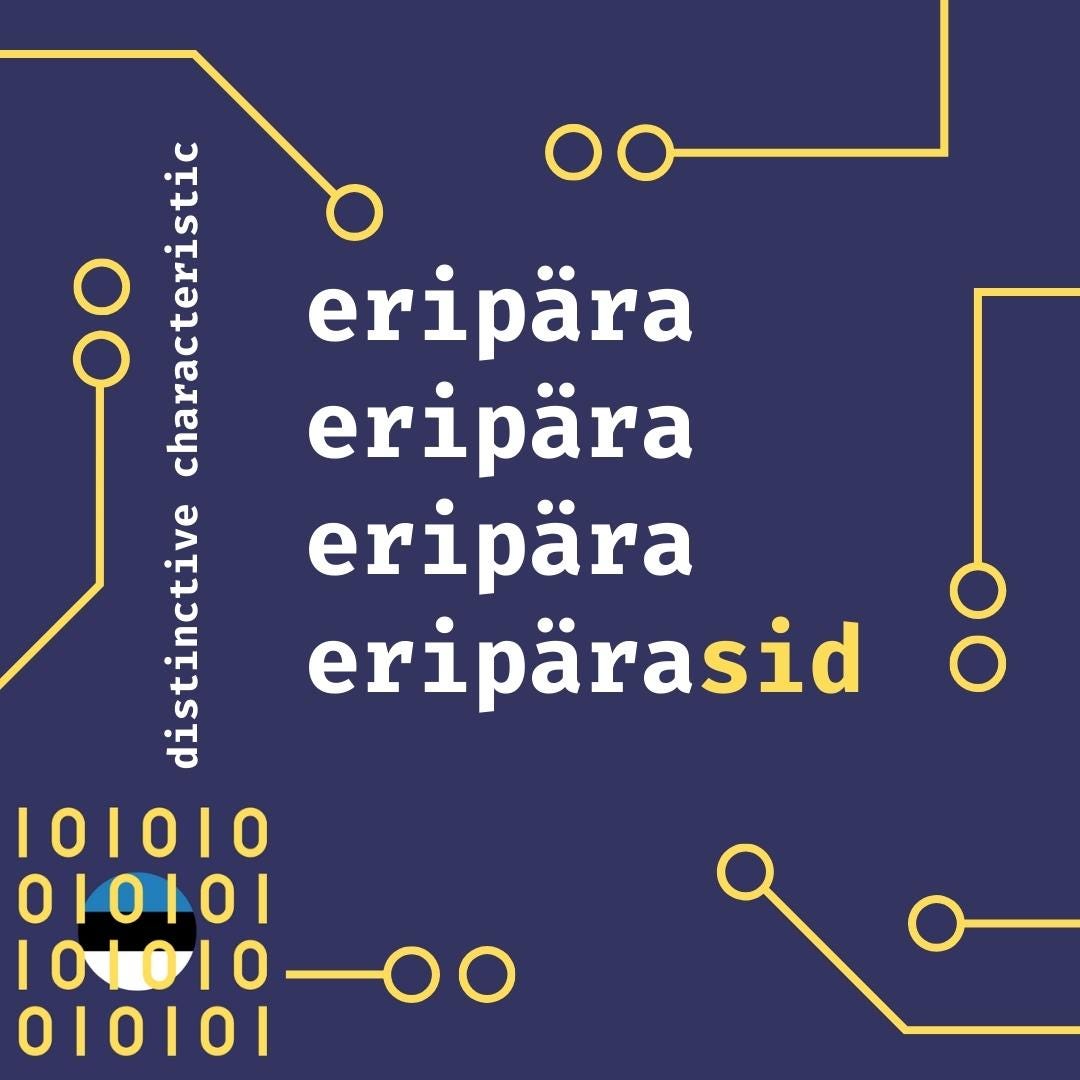Vocab: eripära
distinctive characteristic
distinctive characteristic, special characteristic, peculiarity
Building blocks
eri- separate, distinct, special
-pära=ne - characteristic, suitable,
So, when combined, "eripära" essentially means "distinctive characteristic" or "special property." It is used to describe unique or distinctive qualities or features of something or someone.
The word eri (separate, distinct) is derived from Proto-Indo-Iranian: er - loose, detached
How to use it
Here are some ways you can use this adjective:
Describing Personal Characteristics:
"Tema eripära on positiivsus." (His distinctive characteristic is positivity.)
Talking About Unique Features of a Place:
"Selle küla eripära on vanad kivimajad" (The distinctive features of this village are old stone houses)
Discussing Unique Qualities of Products or Services:
"Selle mobiilirakenduse eripära on kasutajasõbralikkus" (The distinctive characteristic of this mobile app is user-friendliness.)
Explaining Unique Features of Nature:
"Selle liigi eripära on võime sobituda erinevatesse keskkondadesse." (The distinctive characteristic of this species is the ability to adapt to various environments.)
Examples
Eripära teeb igaühe unikaalseks
Literally: “A distinctive characteristic makes everyone unique”
Eripära - Adjective - Nom Sg, "A distinctive characteristic"
teeb - Verb - 3P Present Sg, "makes"
igaühe - Pronoun - Gen Sg, "everyone"
unikaalseks - Adjective - Translative Sg, "unique"Ta rääkis oma kultuuri eripäradest
Literally: “He spoke his culture distinctive characteristics-from”
Idiomatically: “He spoke about the distinctive characteristics of his culture”
Ta - Pronoun - Nom Sg, "He"
rääkis - Verb - 3P Past Sg, "spoke"
oma - Pronoun - Gen Sg, "his"
kultuuri - Noun - Gen Sg, "culture"
eripäradest - Adjective - Elative Pl, "distinctive characteristics-from"

